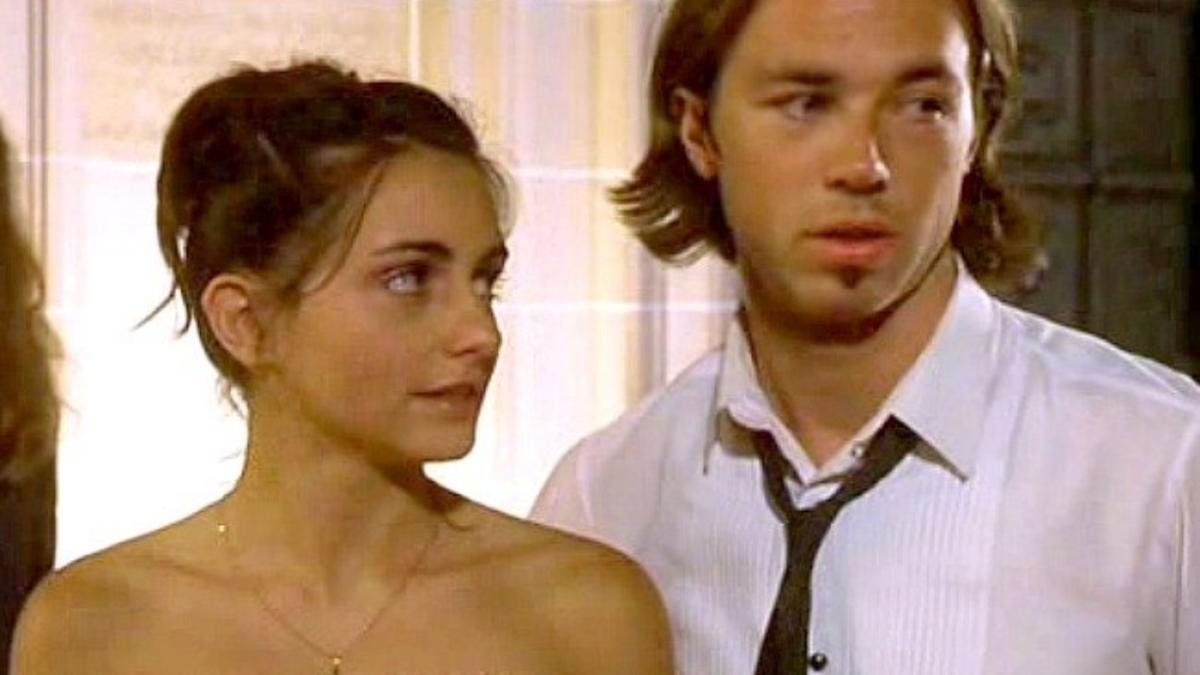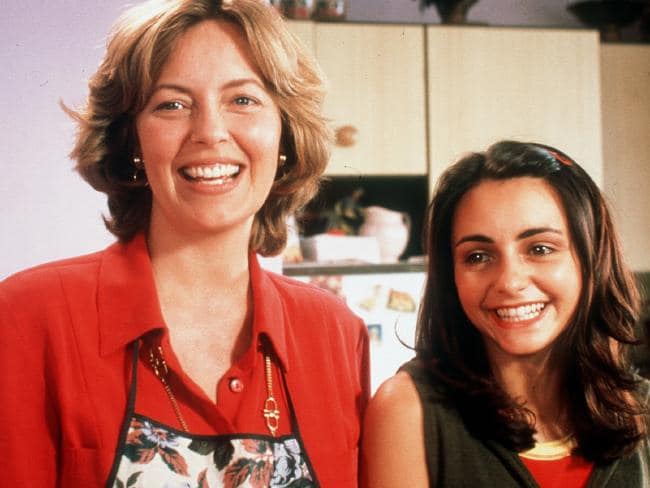
For anyone still heartbroken by the end of Looking For Alibrandi, then good news: author Melina Marchetta reckons Josie and Jacob get back together.
The acclaimed Aussie author caught up with PEDESTRIAN.TV in 2017 to talk about her iconic book on its 25th birthday. It’s been three years since that chat, and it’s still as relevant as ever. Looking For Alibrandi, which was Marchetta’s debut novel in 1992, is still as beloved as it ever was, and the 2000 film – for which Marchetta wrote the script – will still smash your heart to bits.
We spoke with the author about how Australia had changed (or not changed) since the 1990s, her regrets over John Barton‘s storyline, and most importantly, what she thinks happened to her beloved characters next. You can read a condensed version of that interview below.

PEDESTRIAN.TV: ‘Looking For Alibrandi’ was a sharp portrayal of multicultural Sydney in the early 90s, and in particular this casual xenophobia against Italian immigrants by Anglo-Saxon Aussies. Do you think anything’s changed today?
MARCHETTA: I think it’s changed towards certain minority groups. I can’t say that I see a lot of racism towards Italians, whereas when I was growing up in the 70s and 80s, it was quite rampant. I think that sadly society finds a new culture to attack, and I think what makes me sad sometimes is to hear other Italians be so racist against other cultures, and I think, ‘Don’t you remember what it was like?’
One thing that disappoints me the most when it comes to diversity is that I don’t think the film and television industry has embraced diversity. I still feel that is very uncoloured. When I think of Alibrandi coming out as a film in the year 2000 [which Marchetta also wrote the script for], I always thought it was fantastic that Josie Alibrandi was the first teenager of Australian film of the 21st century. But I don’t feel that that has been encouraged in a way. I still feel like we’re seeing the same faces, the same cultures, depicted in our film and television. So that’s probably one area I think it hasn’t changed.
People are shocked when I’m overseas and tell them I’m Aussie. It’s almost like their idea of what an Australian looks like is ‘Neighbours’ or ‘Home and Away’.
P.TV: Honestly, same question, but around class divides – has Sydney changed much since the early 90s?
M: Not in leaps and bounds, but I certainly feel that whenever I’ve done a talk at private schools for example, I certainly see the diversity there. So it’s not a question of private schools and state schools and Catholic schools, I think it’s still a question of area.
I mean, you do get a certain type in the inner west, a certain type in the north shore, a certain type in the eastern suburbs, and a certain type in the Shire or the southern suburbs of Sydney. There is a type and we can’t deny that. I think that when I come across young people, I don’t find that young people are as racist as old people are. Any kind of racism I experience with young people, I think it’s learnt. Their environment, and I think they work themselves out as they get older. It doesn’t surprise me to learn that the 50-something votership – and I’m in that category – are walking away from the Liberal and Labor parties and going to Pauline Hanson. I think older people are much more racist than young people are.
P.TV: What question do you most get asked in interviews?
M: Am I going to write a sequel? And the answer is no, no, no, I’m not.
It’s probably why I keep writing about familiar themes like identity, and I suppose it’s because I’m still trying to work out my identity. I think this country is constantly trying to figure out its identity.
I think identity is such an interesting topic here in Australia, because when you think of – and it’s terrible to put people into three categories – but when I think of Indigenous people, they had this land taken from them, so their sense of identity was rattled by that. And then you’ve got Anglo or Celtic people who are told, ‘This land doesn’t belong to you because you stole it’, and then you’ve got people like me, who are children of migrants, who are told, ‘This doesn’t belong to you, your parents weren’t born here’. So I think we’re constantly grappling about identity.
P.TV: When you were writing ‘Alibrandi’, did you always know John Barton was going to die?
M: I had no idea that John Barton was going to die. In the first draft, with regards to Jacob, they do end up together. I started writing the novel in my very early 20s, by the time it was published it was 27. I had a very romantic idea of the world when I was much younger, like you end up with your first boyfriend, and all of that, so I thought that Josie Alibrandi was brought up with those changes in my life – changes in points of view, the idea that you end up with the first guy that you fall in love with.
So that’s why in the novel, Jacob and Josie do split up at the end, and with the John Barton thread – gosh, I remember distinctly realising that he was going to die, and it’s just terrible, because in a way as a writer you try to stay in the character’s life, and I just realised that if he had gone up to his father and said ‘This is how I feel, let’s talk about it’, it just would’ve seemed unrealistic.

I always feel torn about that, because I’m not sure if I wrote that book today, I’m not sure I would have written about that suicide. It’s touched my life too much since then, and I just don’t know – I don’t think I could have actually gone down that way because of the people close, in my life, who have been affected by suicide. It was never a planned thing, I never thought ‘Okay, I want to write about this girl who meets this boy who doesn’t know what to do and takes his life’. It was a shock. There have been a few shocks in my novels over the years, and that was one of the biggest ones.
P.TV: So do you know what happens next with these characters?
M: One of the exciting things about talking at a festival like the Emerging Writer’s Festival is just explaining to people who haven’t got that experience with their work that they’re not characters that leave you as soon as you [finish the book].
For me, what’s important is that I leave the novel in a way that it’s up to you whether you think the parents end up together, or whether you think Jacob and Josie end up together. If you had to ask me, not what I think happens to these characters but what I hope happens to these characters is, I hope that a couple of years down the track, Josie and Jacob meet up again, get together, and of course I hope that Michael and Christina end up together, but that’s more of a hope. I think that I write with that hope at the end.

I don’t want to close off doors to people’s hopes and wishes, but I also don’t want them to, especially young people, that by the way, it’s always happily ever after, because it’s not always happily ever after. You do break up with your first boyfriend, and it’s for the right reasons. It’s not because someone’s cheated on you, or anything like that, it’s because you go in different directions, you want different things at a particular time in your life. For me, I just try to end it as open ended as possible, to allow the reader to go wherever they want to go with it.
P.TV: And finally, what’s your advice to writers?
M: It’s basic advice: you write every day. Write. I come across so many people who tell me they want to be a writer, and I just feel like saying to them, well go home and write. It’s such a basic thing to say, but what happens for me is I still do that. I force myself to write every day. And I could write a paragraph, or I could write a page, or more than that, and then I look at it the next day, and I get rid of 90 percent. I had to write all of that rubbish – and I call the 90 percent rubbish – to get that 10 percent. It might be a sentence, it might be a sentiment, it might be just a couple of words, but I just think I need to write all of that rubbish to be able to find something to grab onto the next day. That would be my advice: go home and write, rather than talk about writing.



